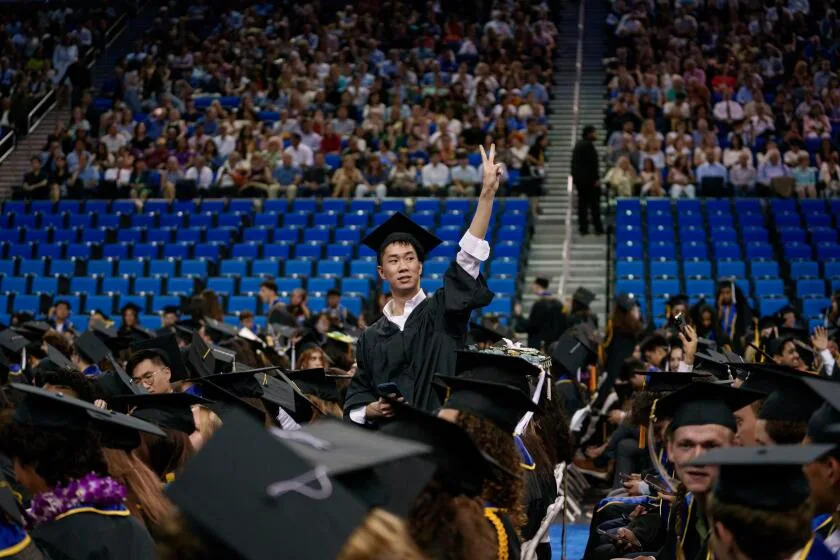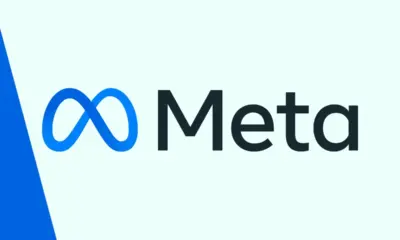Education
Colleges Must Adapt Education for an AI-Driven Future

The rise of artificial intelligence (AI) is reshaping the educational landscape, prompting urgent discussions on how colleges should prepare students for a future dominated by technology. With cheating becoming increasingly effortless and attention spans dwindling, educators are facing unprecedented challenges. A recent NBC News poll, which surveyed nearly 20,000 Americans, revealed a divided public: approximately half support integrating AI into education, while the other half advocate for its ban.
As institutions welcome the Class of 2029, a consensus is emerging among technology leaders that might surprise many. While there is pressure to emphasize STEM fields and technical skills, some influential figures argue for a broader approach. Investor and former Facebook executive Chamath Palihapitiya stated, “I no longer think you should learn to code. The engineer’s role will be supervisory, at best, within 18 months.”
This perspective is echoed by Roman Vorel, chief information officer at Honeywell, who emphasizes that the future workforce will require leaders with emotional intelligence (EQ) — traits such as empathy and self-awareness. According to Daniel Kokotajlo, co-author of “AI 2027”, the focus on economic productivity is shifting. He remarked, “Economic productivity is just no longer the name of the game when it comes to raising kids. What still matters is that my kids are good people — and that they have wisdom and virtue.”
The notion that interpersonal and moral qualities will become more essential than technical skills is gaining traction. Technology journalist Steven Levy reinforced this idea during a recent commencement address, declaring, “You have something that no computer can ever have. It’s a superpower, and every one of you has it in abundance: your humanity.”
In light of these insights, the question arises: how can colleges best nurture these vital human traits? The answer may lie in the principles of a liberal education, which focuses on broad and deep humanistic learning. Despite enrolling only around 4% of undergraduates, small liberal arts colleges historically serve as vital centers for this educational approach.
Liberal education emphasizes engaging with significant texts, artworks, and scientific discoveries that shape our understanding of truth and justice. Instead of merely absorbing information, students participate in active inquiry and dialogue, tackling fundamental questions. What constitutes a good life? How do mathematics and reality interact? Such engagement fosters critical skills necessary for navigating an increasingly complex world.
Wrestling with challenging materials not only builds attention but also enhances communication skills. As students engage in discussions, they learn to consider opposing viewpoints and connect emotional responses with rational thought. This deepened understanding of themselves and their surroundings cultivates wisdom, which is resistant to the shortcuts offered by AI.
At institutions like St. John’s College in Santa Fe, New Mexico, the focus on human connection and deep thought can often overshadow the influence of technology. Conversations around complex topics, such as “Don Quixote,” require more than surface-level understanding, rendering AI-generated summaries insufficient. Students who attempt to bypass genuine engagement through technology may find themselves unprepared for meaningful discourse with faculty.
Another crucial aspect of liberal arts colleges is their strong community culture. These institutions foster tight-knit environments where students and faculty form meaningful connections, offering a wealth of opportunities for face-to-face idea exchange. This engagement creates a distinctive educational experience that technology struggles to replicate.
Reflecting on her time at St. John’s, alumna Carla Echevarria, now a senior manager at Google DeepMind, emphasized how her liberal arts education instilled a sense of intellectual fearlessness. She stated, “When I started working in AI, I didn’t really know anything about AI. I prepared for my interview by reading for a couple of weeks. That fearlessness is the greatest gift of the education.”
As the academic year unfolds and the impact of AI becomes more pronounced, the call for a renaissance in liberal education grows louder. Instead of striving to outpace AI, educational institutions must focus on cultivating individuals who can think critically, act wisely, and engage meaningfully with others.
In this context, it is not about creating new small colleges but rather encouraging existing colleges and universities, both large and small, to embrace practices that prioritize humanity and deep learning. The challenge posed by AI presents an opportunity for a renewed focus on the values that have historically underpinned education. As we move forward, the emphasis should be on preparing students not just for careers, but for lives enriched by clear thinking and genuine human connection.
-

 Technology5 months ago
Technology5 months agoDiscover the Top 10 Calorie Counting Apps of 2025
-

 Technology3 weeks ago
Technology3 weeks agoOpenAI to Implement Age Verification for ChatGPT by December 2025
-

 Health3 months ago
Health3 months agoBella Hadid Shares Health Update After Treatment for Lyme Disease
-

 Health4 months ago
Health4 months agoAnalysts Project Stronger Growth for Apple’s iPhone 17 Lineup
-

 Health4 months ago
Health4 months agoErin Bates Shares Recovery Update Following Sepsis Complications
-

 Technology5 months ago
Technology5 months agoDiscover How to Reverse Image Search Using ChatGPT Effortlessly
-

 Technology3 months ago
Technology3 months agoElectric Moto Influencer Surronster Arrested in Tijuana
-

 Technology5 months ago
Technology5 months agoMeta Initiates $60B AI Data Center Expansion, Starting in Ohio
-

 Technology2 months ago
Technology2 months agoDiscover 2025’s Top GPUs for Exceptional 4K Gaming Performance
-

 Technology5 months ago
Technology5 months agoRecovering a Suspended TikTok Account: A Step-by-Step Guide
-

 Health5 months ago
Health5 months agoTested: Rab Firewall Mountain Jacket Survives Harsh Conditions
-

 Lifestyle5 months ago
Lifestyle5 months agoBelton Family Reunites After Daughter Survives Hill Country Floods





















